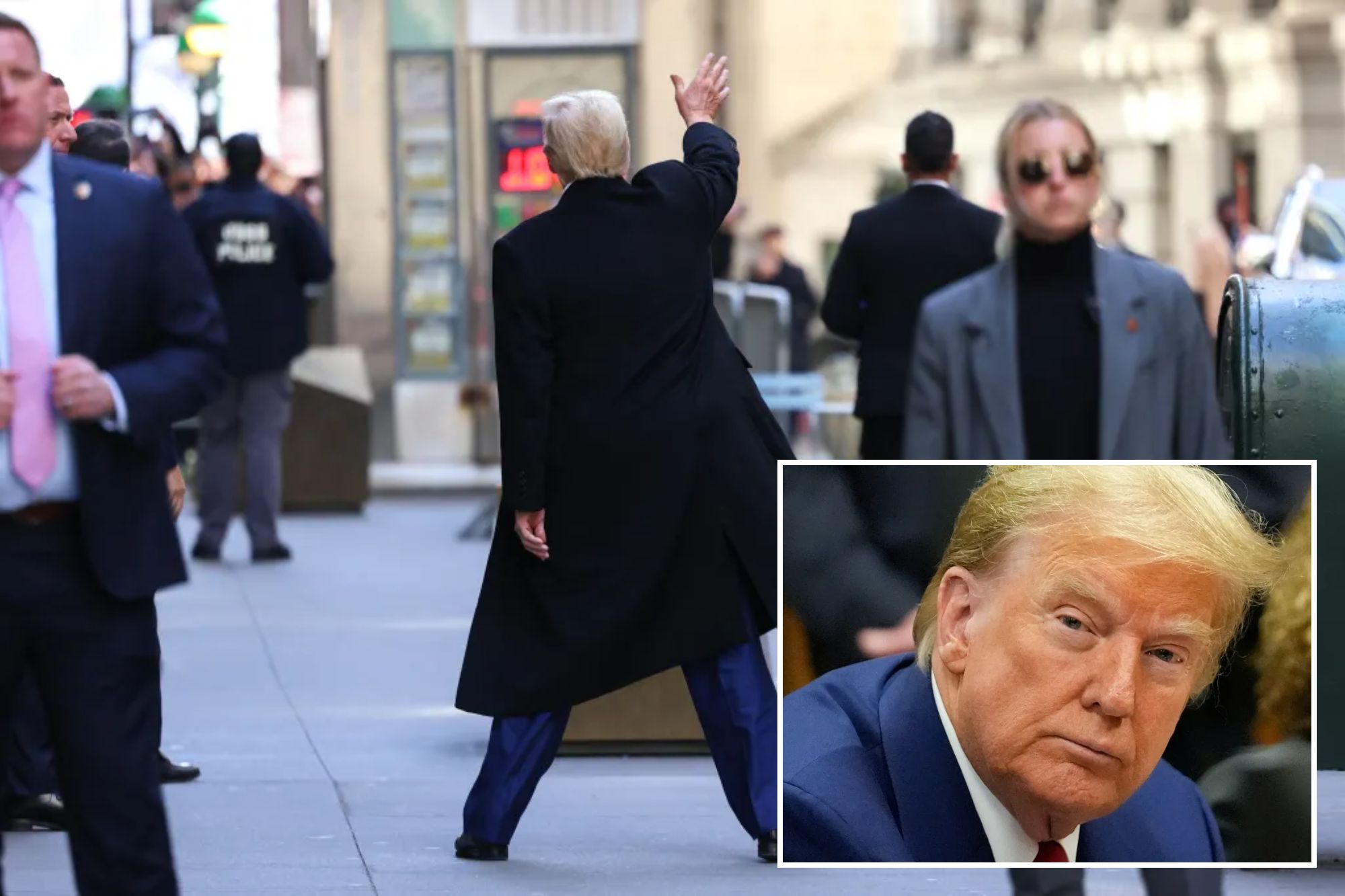
Donald Trump is set to appear in a New York City courtroom Monday as jury selection kicks off in what amounts to a historic moment in US history — the first-ever criminal trial of a former president.
The real estate mogul is due in Manhattan Supreme Court at around 9:30 a.m. as potential jurors are grilled about whether they can fairly judge the case — in which Trump is accused of fudging business records to cover up a hush money payment to porn star Stormy Daniels before the 2016 election.
Trump, 77, has claimed he cannot get a fair trial in Democrat-leaning Manhattan, which he lost in landslides in the 2016 and 2020 presidential elections.
But out of a borough of 1.6 million people, the court only needs 12 vetted jurors and six alternates for opening statements to begin.
Court officials expect the process to take a while.
Attorneys for both sides have unlimited chances to boot jurors for what’s called “cause,” and around 10 chances to strike jurors with no questions asked.
But they’ve agreed not to remove any juror based purely on their political party, which is in line how previous politically charged cases in New York have been handled.
They will also be barred from removing jurors based on their race, gender, religion or national origin.
Prospective panelists are expected to read aloud their answers to a long list of questions — including whether they are part of extremist groups like QAnon or Antifa or “have any strong opinions or firmly held beliefs” about Trump that would stop them from judging the case based on evidence.
Lawyers for both Trump and the Manhattan District Attorney’s Office won’t get to ask jurors directly what political party they belong to. But Justice Juan Merchan has noted that the “answer to that question may easily be gleaned” from other answers — including about what news outlets they read and watch.
Potential jurors’ names will be kept anonymous, though lawyers and consultants for each side will have access to them.
The consultants are expected to comb through the online presences of each possible juror to make sure that they are not hiding any bias in a bid to get on what will be one of the most closely watched trials in US history, legal experts said.
The goal of the process is to find jurors who both sides find palatable, even if they don’t love them.
“It’s actually jury elimination,” Anna Cominsky, who teaches criminal law at New York Law School, told The Post. “Both sides will try to weed out the worst on either side and hopefully you end up in the middle, which is with the jurors who agree to be fair and impartial.”
Every juror is crucial. A single holdout could be the difference between a guilty or innocent verdict and a hung jury — and it’s unclear whether the case could be tried a second time given the upcoming election.
Trump has pleaded not guilty to 34 felony counts of falsifying business records for allegedly lying on his company documents that he was reimbursing his then-lawyer Michael Cohen for “legal services” when he was actually paying him back for the hush money payment to Daniels.
Each of the counts carries a potential prison sentence of up to four years, but it’s unclear if prosecutors would seek to send Trump behind bars in the event of a conviction.














